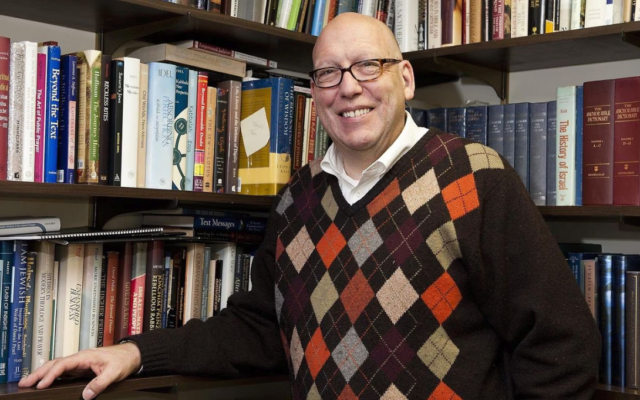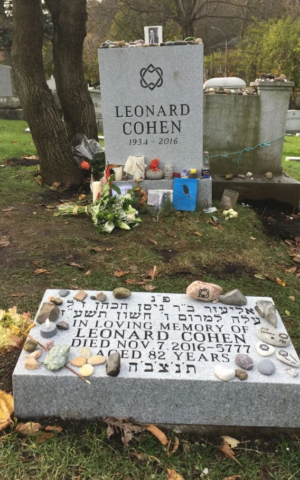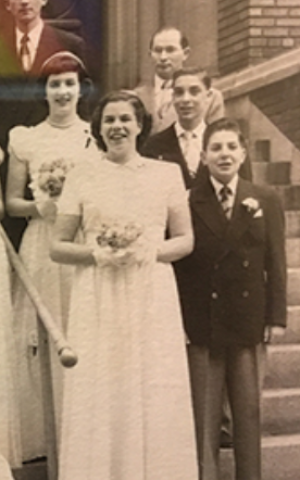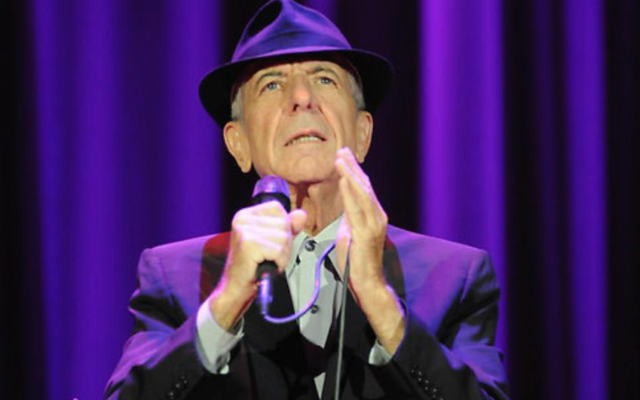There’s More to Leonard Cohen Than Just a ‘Hallelujah’
Guest Rabbi Jeffrey Salkin at Temple Beth Tikvah recounts Cohen’s spiritual journey.
There were very few seats left in the crowded social hall last month at Temple Beth Tikvah as visiting Rabbi Jeffrey Salkin honored the memory of Leonard Cohen, the legendary Jewish Canadian singer and composer who died six years ago at the age of 82.
Many of those who showed up for the evening hadn’t even been born when Cohen released his first album of recorded music in 1967. Fifty-five years later, that album, “The Songs of Leonard Cohen,” is still a strong seller as are many of the other 14 of his studio recordings, including his “You Want It Darker,” that he had worked on almost until he died in late November of 2016.
Since his death, the extraordinary popularity of his “Hallelujah,” first recorded in 1984, has become something of a spiritual hymn for our time. A new documentary film that traces the evolution of the work was shortlisted prior to the nominations for this year’s Academy Awards.

“Hallelujah” is one of the most frequently recorded songs ever written. It has sold more than 10 million copies and been streamed, according to Britain’s Music Ally website, more than five billion times. That figure includes, as Rabbi Salkin reminded his temple audience, the Israel Defense Force.
“Every Saturday night, slash Sunday morning at 4 a.m., the official radio station of the Israel Defense Forces plays ‘Hallelujah.’ It’s been recorded in Hebrew. There’s a version in Yiddish. This is not a song. It is a phenomenon.”
As a number of prominent critics have pointed out, Cohen retains a stronger personal following than perhaps any other musical figure whose career was launched in the folk-rock era of the 1960s and then continued well into the 21st century. His last five years of concert outings, begun in 2008 when his was 74, racked up a remarkable 387 performances before he finally retired from live shows in 2013.

It’s estimated that during that period more than a million concertgoers attended, including a sold-out night at the historic Fox Theater in Atlanta in 2009. Salkin, who has a podcast, 10 books on Jewish thought in print, and is a regular contributor to the Religious News Service, has remained a longtime fan of the Canadian performer. Although much of Cohen’s work was strongly rooted in his Jewish faith, at the same, according to Salkin, he remained a consistent critic of those beliefs
“He always venerated the fact that he was a Cohen, a descendant of the priestly class,” Salkin said. “But he also regularly expressed his belief that Jewish religious leaders had become more concerned with the nominal survival of Jews as a group, rather than with the survival of their role as witnesses to monotheistic faith. So, he found poetry to be his prayer. and music, his form of protest.”
Rabbi Salkin traced that critical voice back to its formal beginnings in his native Montreal, when, in 1964, as an already successful national literary figure there, he was invited to discuss his Jewish identity. Although he was the scion of a distinguished Canadian Jewish family, Salkin related that Cohen was scathing in his denunciation of contemporary Jewish religious life.
“The G-d worshiped in our synagogues is a hideous distortion of a supreme idea and deserves to be destroyed.” Salkin quoted Cohen as saying in 1964, and who continued, “I consider it one of my duties to expose the platitude which we have created.”

But, as the rabbi pointed out, there was more. The young poet, who was 29 at the time, continued his withering metaphorical criticism.
“The community is like an old lady whose canary has escaped in a storm, but who continues to furnish the cage with food and water in the convinced hope that the canary will come back.”
Cohen’s passing has only intensified the examination of the ideas he presented, not only in his recorded work and his public performances, but in the 14 volumes of poetry and three novels that he published in his lifetime.
Just in the last six months, there have been two heavyweight examinations of Cohen’s spiritual legacy. First, in the September publication of Marcia Pally’s, “From this Broken Hill I Sing To You,” and then, in November, Harry Freedman’s “Leonard Cohen: The Mystical Roots of Genius.”
They join the 2017 publication by Rabbi Aubrey Glazer of “Tangle of Matter and Ghost: Leonard Cohen’s Post Secular Songbook of Mysticism. Jewish and Beyond,” as a serious attempt to come to terms with what Glazer calls Cohen’s “uncertainty, doubt and pious agnosticism that speaks so profoundly to listeners today.”
As Salkin reminded his Temple Beth Tikvah audience, this incomplete search for meaning in our lives is best summarized in a verse from his 1992 composition, “Anthem.”
“Ring the bells that still can ring, Forget your perfect offering. There is a crack, a crack in everything. That’s how the light gets in.”
- Arts and Culture
- Local
- Bob Bahr
- temple beth tikvah
- Rabbi Jeffrey SAlkin
- Leonard Cohen
- singer
- composer
- The Songs of Leonard Cohen
- You Want It Darker
- Hallelujah
- Academy Awards
- Music Ally
- Israel Defense Force
- Fox Theater
- Religious News Service
- Marcia Pally’s
- From this Broken Hill I Sing To You
- Harry Freedman
- The Mystical Roots of Genius
- Rabbi Aubrey Glazer




comments